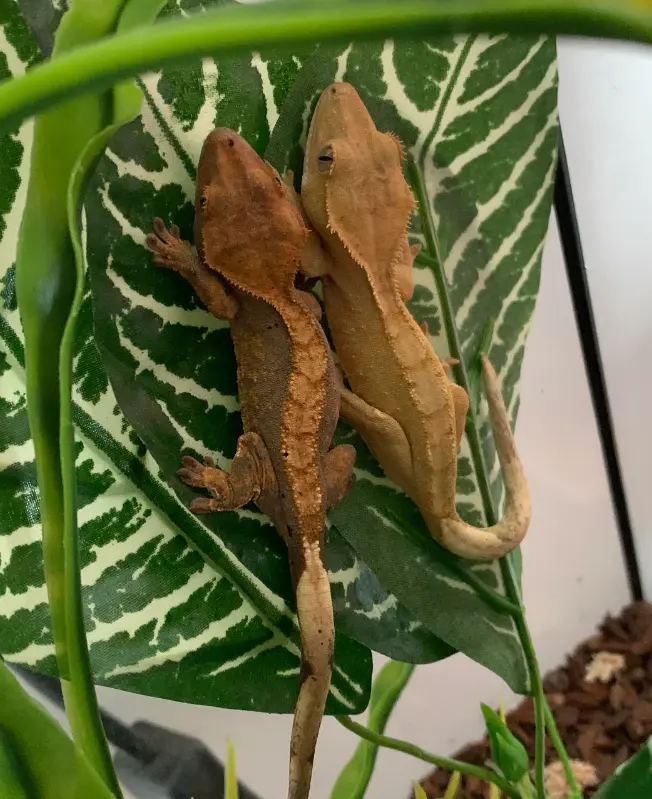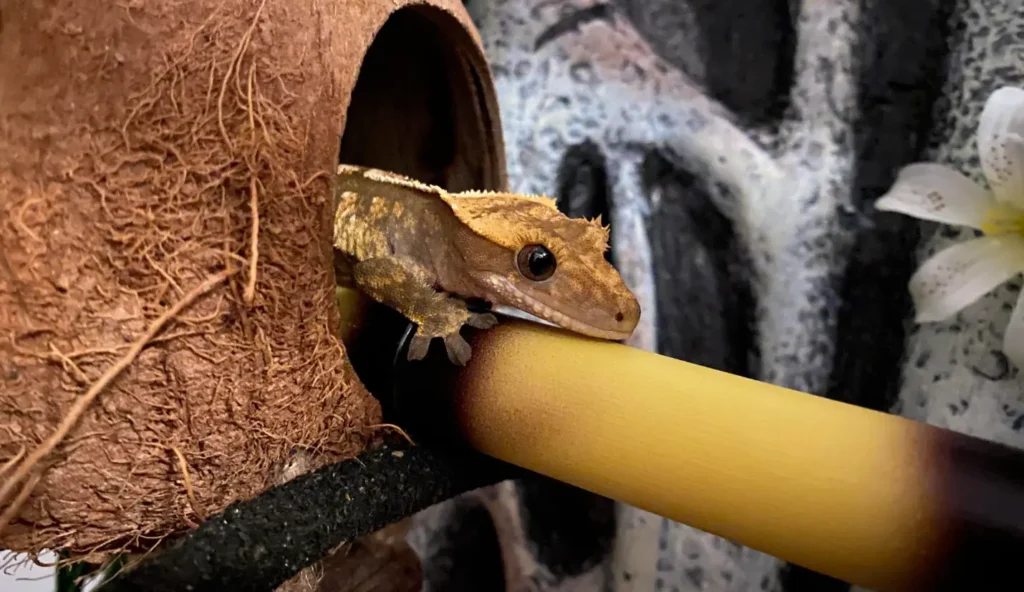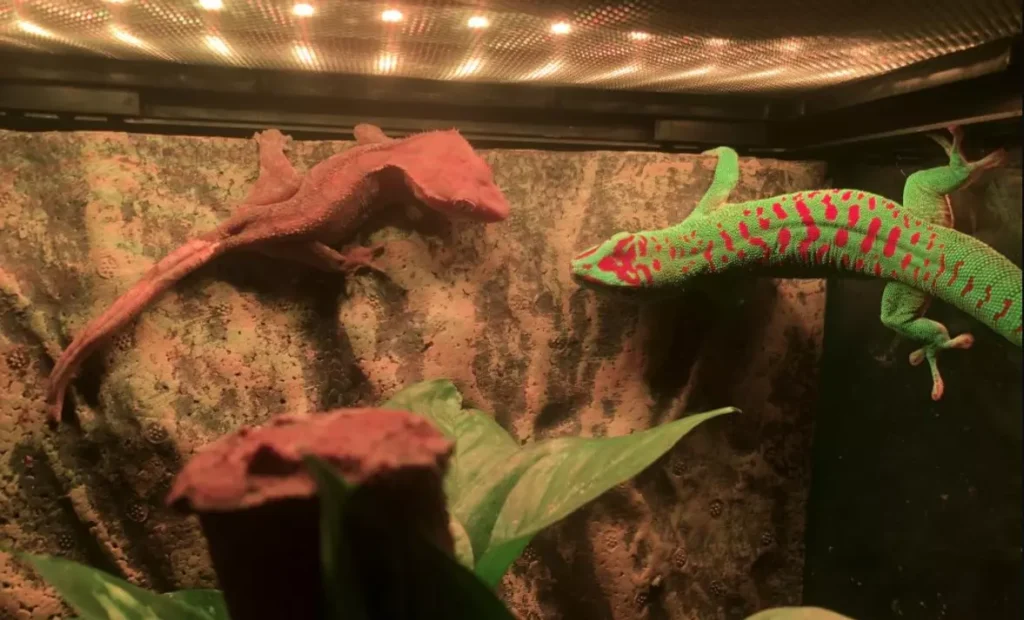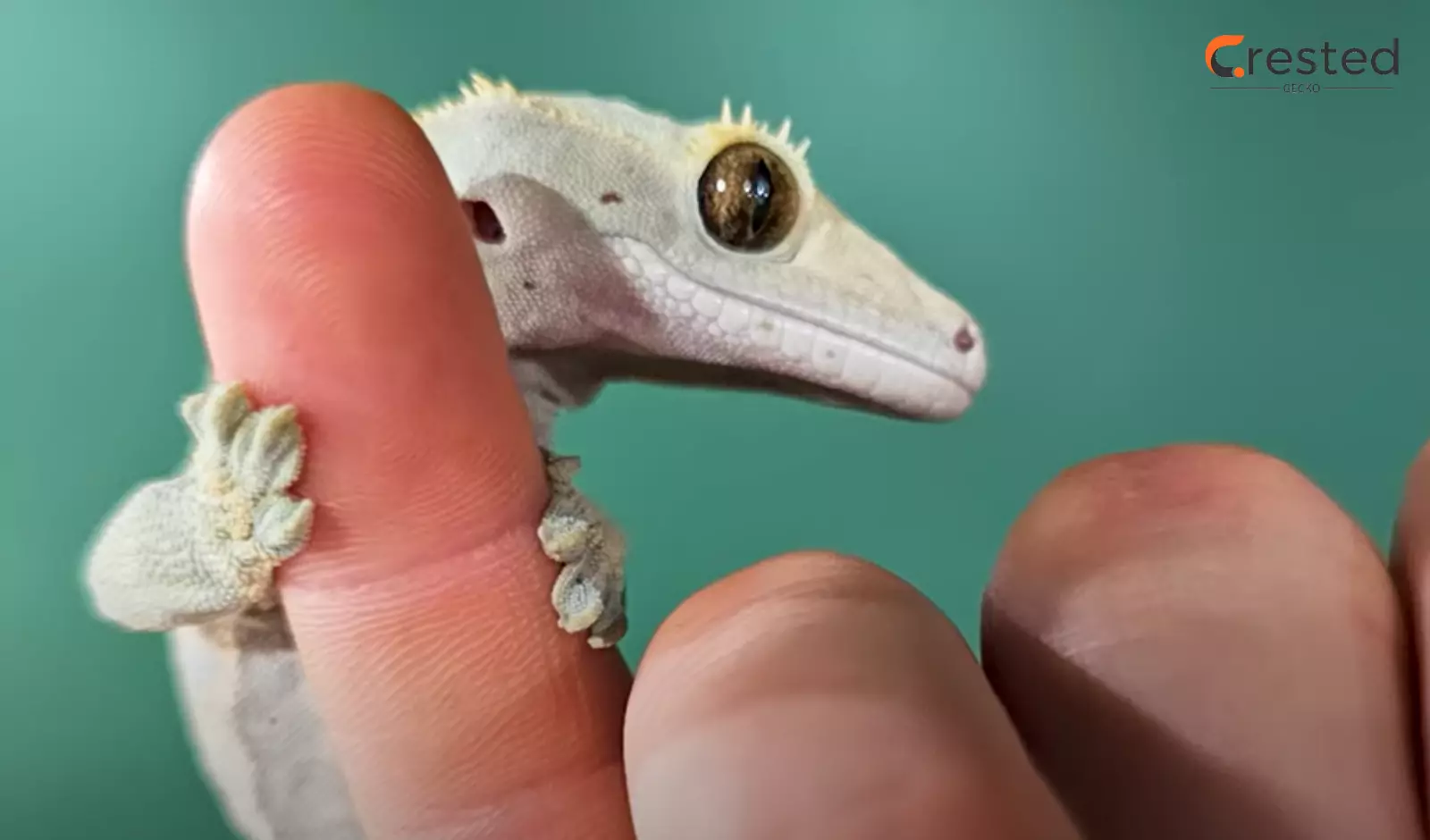If your crested gecko is biting you or being really aggressive, it means he might be either in hunting mode or feeling stressed and scared of you.
But there are other reasons to consider as well.
In this article, we’ll explore why your gecko behaves aggressively and bites you.
Let’s get started.
Key Takeaways:
- Stress or handling: If you handle them too much or if their environment is stressful, they may become defensive.
- Territory issues: If they have a small enclosure or share it with other geckos, they might feel threatened.
- Health problems: If they’re not feeling well or are uncomfortable, it can make them act aggressively.
- Breeding season: Males can become territorial and aggressive during mating season.
- Hunger: If they’re hungry and think your hand is food, they might bite.
Here are the detailed explanations:
1) Mating season

One of the common reasons for crested geckos getting aggressive and biting is mating season.
This typically occurs in spring and summer when the weather gets warmer and the days are longer.
This time, male crested geckos become more active and territorial, which leads to fights with other males or chasing and biting females.
On the other hand, female crested geckos may also become more defensive and refuse the advances of males.
So, if you have multiple crested geckos in the same space, consider separating them during mating season to prevent injuries and stress.
2) Hunger and hunting instinct

Crested geckos eat a mix of plants and small animals.
In the wild, they go after insects, spiders, and other little creatures. But In captivity, you can provide a special food called CGD mixed with water to make a paste for them.
But sometimes, they might prefer live insects or need them to satisfy their hunting instincts.
If your crested gecko is hungry or has a strong desire to hunt, it might bite anything that moves, like your hand or fingers.
To prevent this:
- Offer a balanced diet.
- Feed them at the right time and in the right amount.
- Use a separate container for feeding.
This will stop your crested gecko from linking your hand or fingers with food and reduce the chances of biting.
It will also help prevent them from accidentally consuming substrate or feces, which could lead to health issues like impaction or infection.
3) Territoriality and dominance

Crested geckos like to live by themselves or with a few friends of the same sex.
They can be a bit possessive and want to be in charge. Sometimes, they might fight with other geckos for their own space, food, or a mate.
This is especially common among male crested geckos, who can get quite feisty and competitive with each other.
If you have more than one crested gecko in the same home, you might see some signs of them wanting to be in charge.
For example, they might have little tussles with other geckos to claim their space or show who’s the boss. They might also argue over food or mates, especially when it’s time to find a partner.
They might use their teeth, claws, or tails to try and win.
To prevent this:
- Make sure there’s enough room and hiding spots for everyone.
- Keep the boys and girls apart if they’re being too aggressive.
- If you’re introducing new geckos, do it carefully and little by little.
F.A.Q.s
Q: How can I tell if my crested gecko is male or female?
You can tell the sex of your crested gecko by looking at its vent, which is the opening for the reproductive and excretory organs.
Male crested geckos have two bulges on either side of the vent, which are the hemipenes, or the male reproductive organs.
We have a detailed guide on this with photos. You can check out this from here.
Q: Can crested geckos live together?
Crested geckos can live together, but only under certain conditions.
You should only keep crested geckos of the same sex together, as keeping males and females together can lead to unwanted breeding, stress, or injury.
You should also avoid keeping more than one

